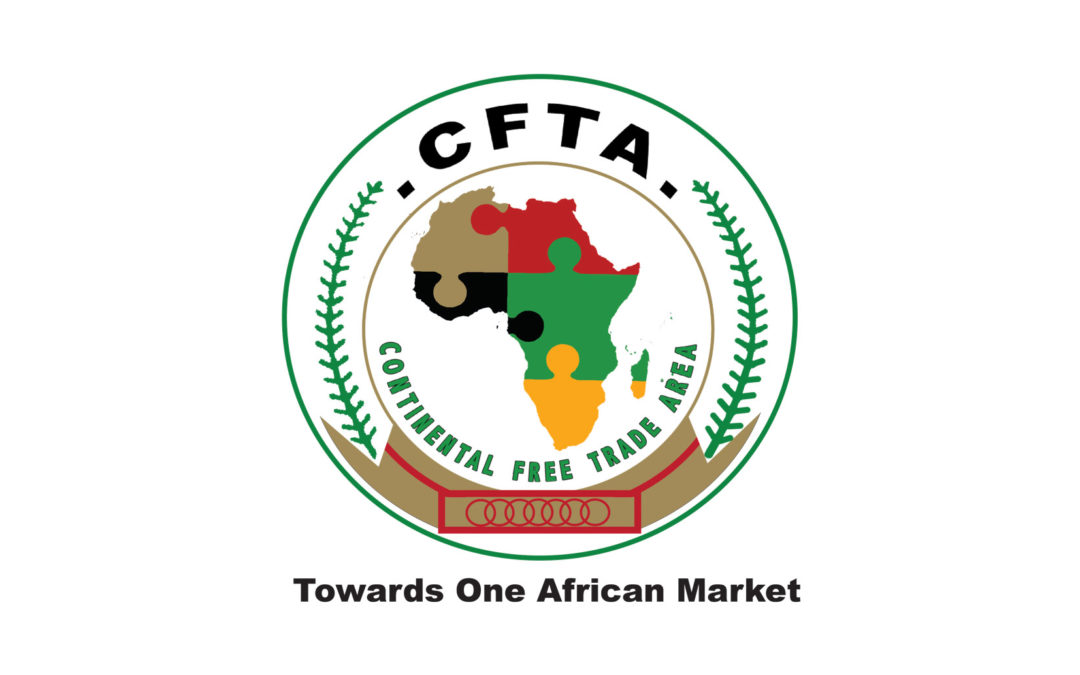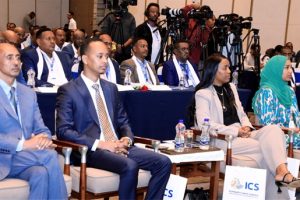
The African Continental Free Trade Agreement (AfCFTA), signed by 44 African countries in Kigali, Rwanda, in March 2018, is expected to create a tariff-free continent to stimulate businesses, boost intra-African trade, revamp industrialization and create jobs. Ethiopia’s House of People’s Representatives has also ratified the agreement to establish AfCFTA recently.
‘Merkato’, the largest open market in Ethiopia, is filled with products imported from China, India, Singapore, Italy, and Malaysia, among others. Seldom one can find products produced by African countries even if some of these imported commodities are also produced here in the continent. And the reason for the retailers to look outwards and import non-African goods is the fact that trade regulations and tariffs make intra-African commerce costly, inefficient and cumbersome.
The AfCFTA aims to create a single continental market for goods and services, with free movement of business persons and investments, and pave the way for accelerating the establishment of the Continental Customs Union and expand African trade through better harmonization and coordination of trade liberalization and facilitation regimes and instruments.
It will also expedite the regional and continental integration processes, as well as enhance competitiveness at the industry and enterprise level through exploiting opportunities for scale production, continental market access and better reallocation of resources. The agreement also commits countries to remove tariffs on 90 percent of goods, with 10 percent of “sensitive items” to be phased in later.
Signing the agreement is one step forward to ensure economic integration between African countries, but various preconditions have to be met, and tasks have to be performed to put the agreement into action, according to a government official and macroeconomic expert. AfCFTA will liberalize trade in services and might in the future include free movement of people and a single currency, says Musse Mindaye, Multilateral Trade Deal and Relations Director under the Ministry of Trade.
It will have to be ratified and put into action by individual countries to boost intraAfrica trade, which stands at around 10 percent of all trade across the continent, by creating a free trade zone. Musse also tells The Ethiopian Herald that the agreement brings together 1.2 billion people with a combined gross domestic product (GDP) of over 2 trillion USD.
Domestic merchants and investors will start to plan by taking the continental market into consideration. Because it will attract wide market opportunity, the agreement enables African countries like Ethiopia to attract potential investors who have a capacity of creating ample job opportunities. “AfCFTA will provide a chance to prevent trade conflicts before they happen.
Consumers will also have a chance to buy products at a discount price. At the end of the day, the government would also be beneficiary from tax and jobs created for its fellow citizens,” Musse said. But apposite preparations have to be undertaken to put the agreement into action. In trade relation, infrastructure development activity always comes first and it has been implemented by the committee organized for this purpose.
Accordingly, the construction of roads connecting all parts of the continent has already started in various regions. “In addition, there is a need to convert informal trade exchanges to a formal one,” he says adding the signed document is a general framework agreement. It requires negotiation between 55 African countries to become effective.
Before and after the signing ceremony, Ethiopia has been discussing with countries on issues related to tariff and the economic sectors ready to be opened. The next point of discussion will be on the procedure of trade integration and the importance of protection, he adds. These days, Ethiopia is importing products such as crude oil and fertilizer with zero tariffs from Sudan and Morocco respectively.
Dr. Belay Fille, Economist at Civil Service University for his part says each African country should conduct in-depth analysis about economic integration and deliberate on the matter using different regional arrangements such as COMMESA, ECOASS, and IGAD etc. He believes that tariff-free access to a huge and unified market will encourage manufacturers and service providers to leverage economies of scale; and an increase in demand will instigate an increase in production, which in turn will lower unit costs.
Consumers will pay less for products and services as businesses expand operations and hire additional employees. He advised that instead of competing with one another by producing monocular products and contributing their share for price fall, African countries signed AfCFTA agreement should foster regional integration and increase the monopoly power of goods.
Dr. Belay also states that signing an agreement by itself is nothing. “Signatories should be committed and ready to take action for the applicability of the signed agreement. What else, the infrastructural development projects being carried out jointly by countries are essential and need to be sustainable.
The visa on arrival is another point that we need to consider, it means a lot for tourism development, he notes. “If the agreement is successfully implemented, a free trade area could inch Africa toward its agelong economic integration ambition, possibly leading to the establishment of pan-African institutions such as the African Economic Community, African Monetary Union, African Customs Union and so on.
The Ethiopian Herald, April 4/2019
BY GIRMACHEW GASHAW





